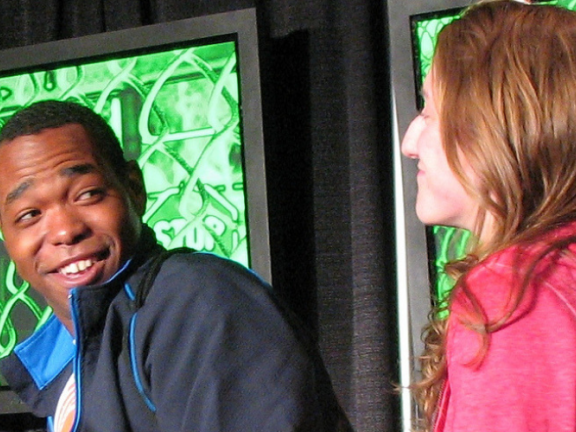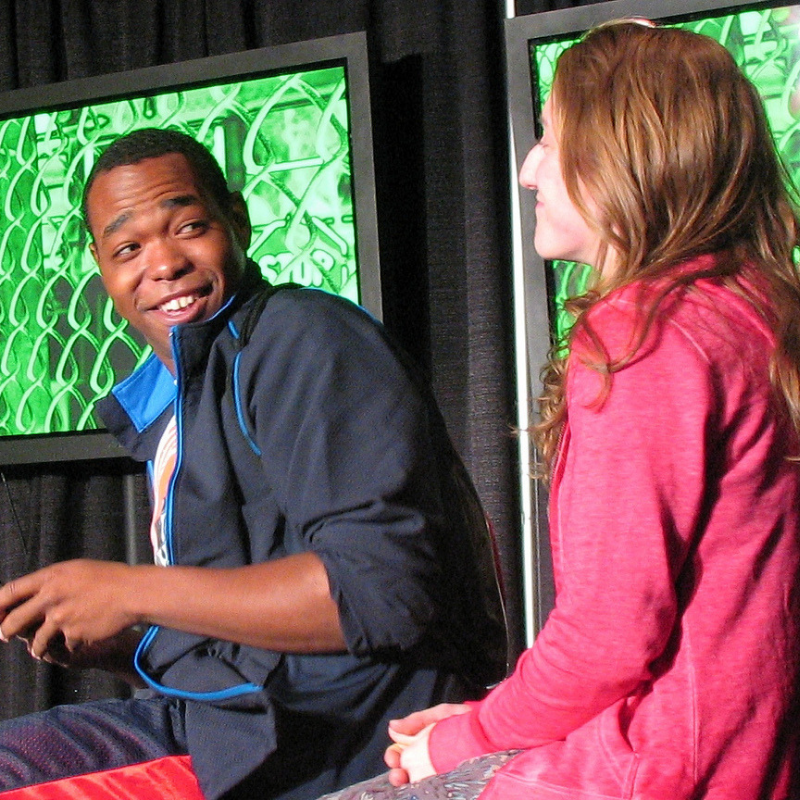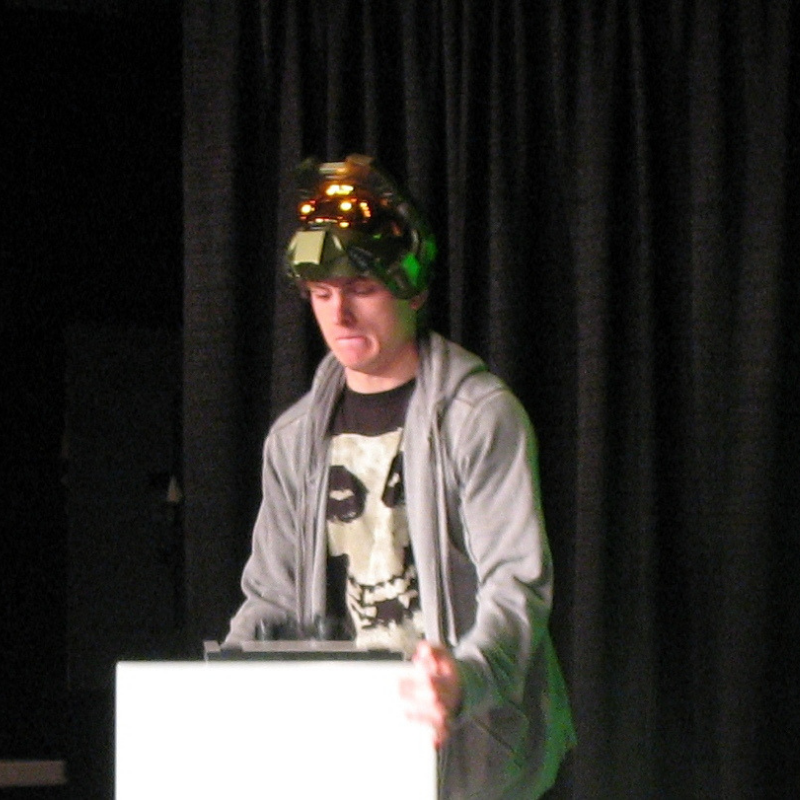The Conversation on Cyber-Bullying Takes the Stage at George Street Playhouse

The lobby of the George Street Playhouse in New Brunswick was a busy place on a recent Saturday afternoon. A congenial and chatty crowd there, waiting to see “Circle Mirror Transformation”, the Mainstage production starring Sandy Duncan. And, in the more intimate, black box theatre, there was a free performance of “IRL: In Real Life” as part of their as part of their Open Stage Series. The show, written by R.N. Sandberg, addresses the provocative hot-button topic of cyber-bullying. Bullying is certainly nothing new among children and young adults, but the technological developments of the past decade or so have changed it up. Back in the day, being bullied might mean that some kid called you a nasty name or made a comment about your clothing choices or your eyeglasses when you were at recess. If the playground was particularly crowded that day, it was possible that a couple dozen friends and classmates witnessed the encounter. A few might mention it to you again later that day, or even tell others. And maybe the incident would resurface again. Some people might talk about it on the bus. Or your friends might joke about it and encourage you to plan a defensive action. But, most likely, the overall effect would not be too serious or long-lasting.

In today’s times, however, it is possible for an off-handed comment or an adolescent jab to escalate from minor and meaningless to something much more sinister at an astonishingly fast pace.
And this is the tale that unfolds – with texting and elaborate social media networking and computer-generated visuals – in this powerful show.

The playwright, R. N. Sandberg, interviewed a slew of students, some as young as 11 or 12 years old, to create this story. Some were kids that who were in classes at George Street, some were students from area schools, and others were in a summer program at Princeton (where Sandberg works) and came from all over the country. Rather than ask the students many specific questions, Sandberg instead encouraged them to talk about what they see and encounter in their daily lives, and then culled what he got from these interviews into the first version of “IRL” in 2007. Sandberg has revised the content somewhat since he wrote the original draft, in part to keep pace with the ever-evolving technological environment. At its core, though, the story – which deals with the challenges and choices that confront us every day – has stayed the same.
In addition to a few performances scheduled at the theatre, the George Street Playhouse Educational Touring Theatre also takes the show on the road to students all over New Jersey. And this is where the show really shines. For the casual audience member, “IRL” is thought-provoking and even entertaining, but imagine the effect that seeing this show and engaging with cast members in the post-performance workshop session could have on a young person dealing with a situation similar to the ones portrayed in the show. Dare I say it might be life-changing? At the very least, watching “IRL” could a catalyst for conversation about this important topic.
There is no doubt that art makes an impact. That effect can be as simple as the way I feel when a song I love unexpectedly comes on the radio as I’m driving to work, or the carried away sensation I have when I watch a ballet performance. Or, on a bigger picture scale, art can be an instrument by which vital information and wisdom is passed on. Think about it.
